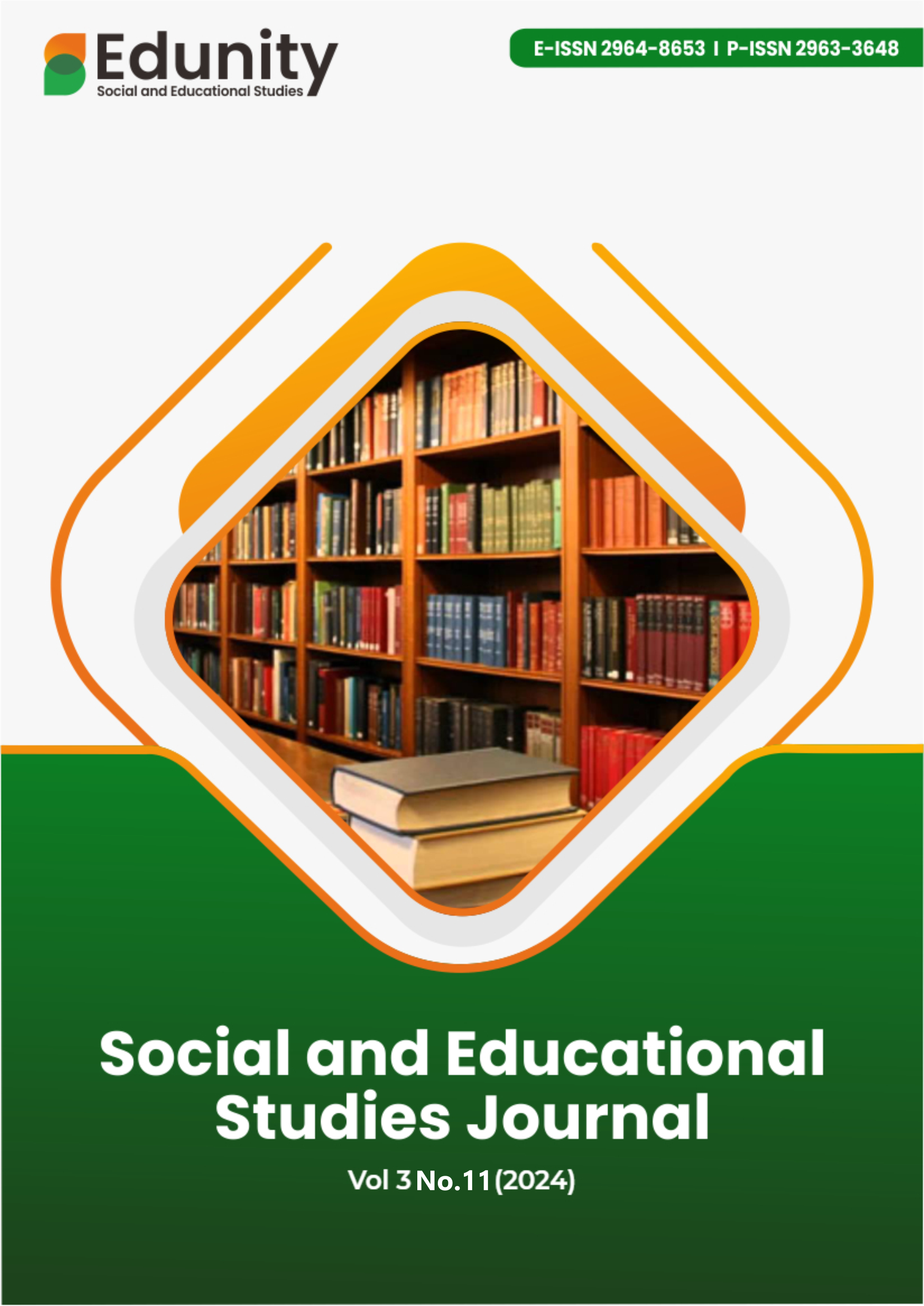Political Communication Strategies In The Digital Era For Generation Z Voters
DOI:
https://doi.org/10.57096/edunity.v3i11.309Keywords:
Communication;, Politics;, Digital Era;, Generation ZAbstract
The development of the digital era has changed political communication strategies, especially in reaching Generation Z voters. Social media such as Instagram, Facebook and TikTok have become the main platforms for delivering political messages. The purpose of this study is to analyze Generation Z's views on political communication strategies carried out by politicians in the digital era, as well as identify the effectiveness of social media platforms in attracting the attention of young voters. This research uses a qualitative method with data collection techniques through observation and interviews with six informants from Generation Z who have the right to vote. The analysis was conducted by categorizing the data into relevant themes. The results showed that political communication strategies using social media succeeded in attracting Generation Z's attention. Interesting political messaging and visual content are effective in increasing young voters' interest. The informants revealed that casual and familiar language, as well as the use of humor in political content, greatly influenced their engagement. Social media not only facilitates access to political information, but also enables direct interaction between politicians and voters. However, challenges such as the spread of fake news and the need for critical skills in assessing information are significant barriers for Generation Z. Political communication strategies that utilize social media are very effective for attracting Generation Z. However, efforts need to be made to ensure the accuracy of information and build critical skills in assessing news, so that Generation Z can participate informally in the political process.
References
Agil, H., Ahmad, A. L., & Azlan, A. A. (2021). Sikap Pengguna Milenial Melalui Perspektif Budaya Terhadap Pengiklanan Media Sosial. Malaysian Journal of Social Sciences and Humanities (MJSSH), 6(11), 66–77.
Cervi, L. (2021). Tik Tok and generation Z. Theatre, Dance and Performance Training, 12(2), 198–204.
Cohen, M. D. (2021). Modern political campaigns: How professionalism, technology, and speed have revolutionized elections. Rowman & Littlefield.
Dabula, N. (2016). The influence of social media political marketing on trust, loyalty and voting intention of youth voters in South Africa. University of the Witwatersrand, Faculty of Commerce, Law and Management ….
Haddouche, H., & Salomone, C. (2018). Generation Z and the tourist experience: tourist stories and use of social networks. Journal of Tourism Futures, 4(1), 69–79.
Khalifa, A. S. (2021). Strategy and what it means to be strategic: redefining strategic, operational, and tactical decisions. Journal of Strategy and Management, 14(4), 381–396.
Kneuer, M., & Milner, H. V. (2019). The digital revolution and its impact for political science. M. Kneuer and HV Milner, Political Science and Digitalization–Global Perspectives. Opladen, Germany: Verlag Barbara Budrich, 7–21.
Koç, B. (2023). The Role of User Interactions In Social Media On Recommendation Algorithms: Evaluation of Tiktok’s Personalization Practices From User’s Perspective[Istanbul University]. ISTANBUL UNIVERSITY.
Langemeyer, J., Calcagni, F., & Baró, F. (2018). Mapping the intangible: Using geolocated social media data to examine landscape aesthetics. Land Use Policy, 77, 542–552.
Munsch, A. (2021). Millennial and generation Z digital marketing communication and advertising effectiveness: A qualitative exploration. Journal of Global Scholars of Marketing Science, 31(1), 10–29.
Priporas, C.-V., Stylos, N., & Fotiadis, A. K. (2017). Generation Z consumers’ expectations of interactions in smart retailing: A future agenda. Computers in Human Behavior, 77, 374–381.
Reitz, A. (2019). Political Campaign Strategies of the party Alternative for Germany: A qualitative Study of Posters for the 2017 Federal Election.
Semode, F. D., Ejitagha, S., & Baro, E. E. (2017). Social Networking Sites: Changing Roles, Skills and Use by Librarians in Tertiary Institutions in Nigeria. Library Philosophy & Practice.
Siraj, N., Nurfalah, F., Listiana, R. A., & Santika, R. N. (2021). Pengenalan beretika komunikasi dalam sosial media di kalangan remaja SMA windu wacana kota Cirebon. Altruis: Journal of Community Services, 2(2).
Utari, N. (2022). Penggunaan Media Sosial Dan Transformasi Pemasaran Politik Dan Kampanye Demokrasi Yang Berkembang Di Indonesia. SIBATIK JOURNAL: Jurnal Ilmiah Bidang Sosial, Ekonomi, Budaya, Teknologi, Dan Pendidikan, 1(8), 1515–1524.
Wulandari, S., Nurfalah, F., & Gani, R. (2021). Social Interaction Of Students In The Environment Of Isi Communication Science Universitas Swadaya Gunung Jati Cirebon And Fikom Universitas Islam Bandung. International Journal of Entrepreneurship and Business Development, 4(04).
Yasa, I. K. W. P. (2024). Personal Branding of Politicians Through Social MEDIA as Political Communication in Attracting Gen-Z People. Jurnal Pewarta Indonesia, 6(1), 1–13.

Downloads
Published
Issue
Section
License
Copyright (c) 2024 Hana Alifatunnisa, Maullidha Azzhahra, Farida Nurfalah

This work is licensed under a Creative Commons Attribution-ShareAlike 4.0 International License.
Authors who publish with this journal agree to the following terms:
- Authors retain copyright and grant the journal right of first publication with the work simultaneously licensed under aCreative Commons Attribution-ShareAlike 4.0 International (CC-BY-SA). that allows others to share the work with an acknowledgement of the work's authorship and initial publication in this journal.
- Authors are able to enter into separate, additional contractual arrangements for the non-exclusive distribution of the journal's published version of the work (e.g., post it to an institutional repository or publish it in a book), with an acknowledgement of its initial publication in this journal.
- Authors are permitted and encouraged to post their work online (e.g., in institutional repositories or on their website) prior to and during the submission process, as it can lead to productive exchanges, as well as earlier and greater citation of published work.






